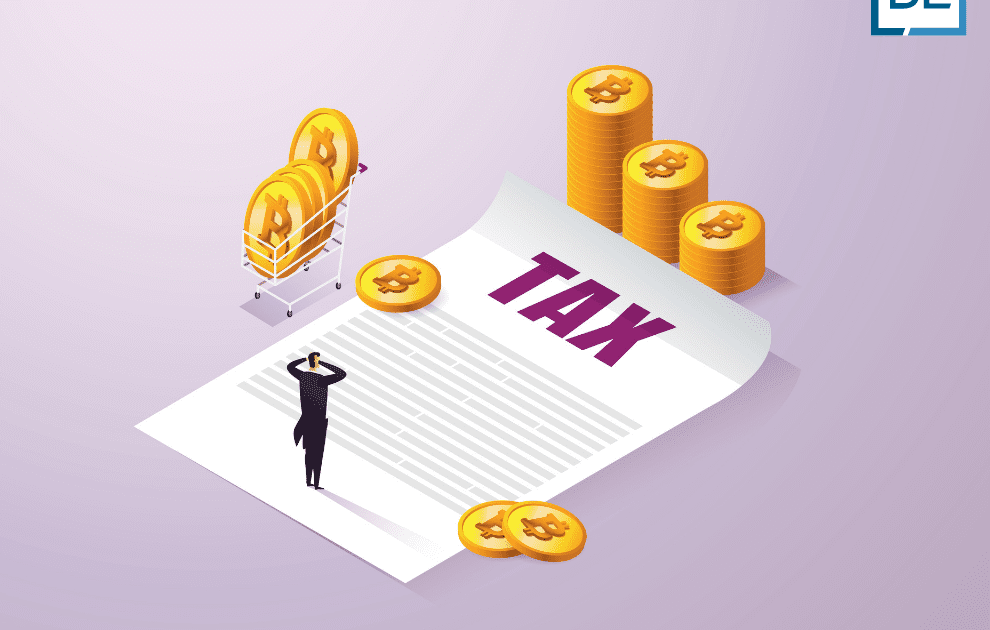Belaws Home ›› Thailand ›› Blog ›› 2022 Cryptocurrency Taxation guidelines in Thailand
news – crypto – tax
2025 Cryptocurrency Taxation guidelines in Thailand
31/03/2022
Thailand’s Revenue Department has published the first official guidelines relating to personal income tax on cryptocurrency and digital assets in Thailand. These guidelines are retrospective and will apply from the year 2021 onwards.
The guidelines contain information for the calculation of the assessable income earned from cryptocurrencies and digital tokens. To achieve this the Revenue Department has broken cryptocurrency and digital assets down into five distinct categories, trading, mining, remuneration, gifts, return on investment).
Key Points
- Crypto and digital asset transactions have been split into 5 categories: trading, mining, remuneration, gifts, return on investment.
- Personal Income Tax (PIT) for trading is calculated using either the First In First Out (FIFO) or Moving Cost Average methods.
- PIT owed due to blockchain mining is calculated using FIFO.
- PIT owed due to remuneration, gifts, return on investment is calculated using either the: (i) the trading price on the payment date; or (ii) the average daily price on the payment date.
Cryptocurrency Taxation
As mentioned above, the taxation of cryptocurrencies and digital tokens can be split up into five different categories. Each category represents a different approach for how to tax assessable income.
Cryptocurrency Trading
The income derived from trading will be considered assessable income under Section 40 (4) (g) of the Revenue Code Amendment Act (No. 19).
Trading is defined as the exchanging, selling, transferring, or disposing of cryptocurrency. If a person undertakes any of these activities, they will be required to pay income tax under the Thai Revenue Code.
In order to work out whether any assessable income has been made, a calculation of a cryptocurrency’s price must be made. This is done by using the following techniques, First In, First Out or The Moving Average Cost. The taxpayer must choose which method to use, but after a decision has been made, they must continue to use their chosen method for the remainder of the tax year.
The First In, First Out (FIFO)
FIFO operates under the assumption that the cryptocurrencies or digital tokens which were purchased first are sold first. For instance, if an investor purchased 1 Coin for $1,000, and a few months later purchased a second coin for $2,000. The investor then sells 1 coin at a later date for $5,000, his capital gain would be $4,000.
| Transaction | Taxable gain |
| Purchased 1 coin for $1,000 | N/A |
| Purchased 1 coin for $2,000 | N/A |
| Sold 1 coin for $4,000 | $3,000 ($4,000 – $1,000) |
Moving Average Cost (MAC)
MAC can be calculated by summing up the prices of all cryptocurrencies purchased during an accounting period. This total amount will then be divided by the total number of cryptocurrencies owned.
For example, an investor purchases 200 coins at a cost of $1 each, and 300 more at a later date for $1.50 each, and then sells 200 coins for $2 each. The MAC would calculate the average cost of $1.30 ($1 x 200 + $1.50 x 300)/(200 + 300). This cost will then be applied to all coins (of the same type) purchased during that accounting period. The capital gains would be derived from the final sum using the cost calculated by the MAC.
Please note that any loss incurred from the trading of cryptocurrency and digital tokens can be offset against revenue accrued in the same accounting period. This can only be applied to transactions made on an exchange platform approved by the Security and Exchange Commission.
Cryptocurrency Mining
Any cryptocurrencies obtained from mining are not considered to be assessable income unless any of the following occurs:
The cryptocurrency is either disposed of, sold, exchanged, or transferred. Any revenue earned from mining is classified as assessable income under 40(8).
Expenditures incurred as a result of mining (e.g computer maintenance costs, wages, utility bills, etc.) can all be claimed as expenses, as stated in the Thai Revenue Code.
When calculating the price of the mined cryptocurrency, the First In, First Out (FIFO) method is to be applied.
Remuneration Paid in Cryptocurrency
Income earned from cryptocurrency remuneration falls into the following categories:
i) employment income; and
(ii) earned income via self-employment or the performance of work.
Any Withholding Tax deducted from the remuneration must be included when calculating the cryptocurrency price.
When calculating the cryptocurrency price for tax liabilities, taxpayers can use either the
(i) the trading price on the payment date; or
(ii) the average daily price on the payment date.
Gifts, Prizes and Awards
Any cryptocurrency or digital assets received as monetary awards, gifts, prizes and cash equivalents are subject to personal income tax under section 40 (8) of the Royal Decree issued under the Revenue Code No. 19.
When calculating the cryptocurrency price for tax liabilities, taxpayers can use either the:
(i) the trading price on the payment date; or
(ii) the average daily price on the payment date.
Return on Investment
Any returns made from the investment of digital tokens are classified as assessable income under Section 40 (4) (g) of the Royal Decree No. 19. Any returns made from cryptocurrency investments are classified as assessable income under Section 40 (8).
When calculating the cryptocurrency price for tax liabilities, taxpayers can use either the:
(i) the trading price on the payment date; or
(ii) the average daily price on the payment date.
When a taxpayer has chosen their desired method of calculation, they must use that method throughout that accounting period and cannot change.
How Belaws can help
Our tax experts can assist you with the filing of your yearly PIT return, please click here for more info.
The Belaws blockchain and Cryptocurrency tax service provides reliable advice and feedback relating to blockchain tax best practices to ensure our clients are in full compliance with the current legislation at all times.
For more information relating to the Blockchain in Thailand, please feel free to book a consultation with one of our experts.
Please note that this article is for information purposes only and does not constitute legal advice.
Our consultations last for a period of 1 hour and are conducted by our Blockchain experts Lawyers who are fluent in English, French and Thai.
Consultations can be hosted via WhatsApp or Video Conferencing software for your convenience. A consultation with one of our Blockchain experts is undoubtedly the best way to get all the information you need and answer any questions you may have about your new business or project.
USD 150
Up to 1 hour
Online payment (Paypal or Credit card)
Legal consultation can be conducted in English, French or Thai
Legal consultations are handled by experienced lawyers from the relevant fields of practice
Subscribe today
Subscribe today
To our newsletter for all the latest legal news
in South East Asia, Belaws updates and
special promotions on our services.
To our newsletter today for all the latest legal news in South East Asia,
Belaws updates and special promotions on our services.




